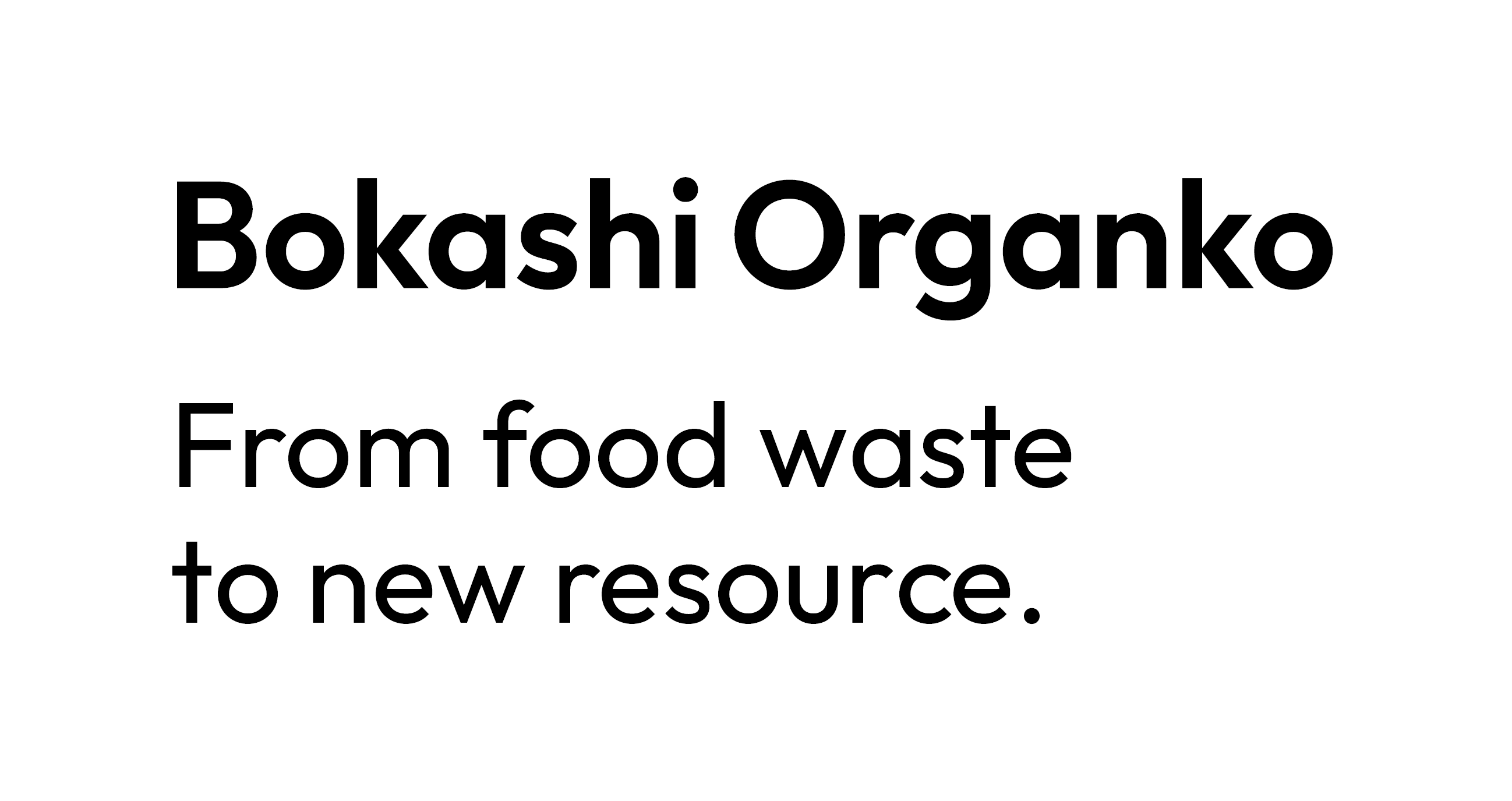Before we dig into 5 easy tips for a zero waste kitchen, we’d like to thank you for being environmentally conscious. We know it is not always easy combating the burden of being bombarded with a ton of single-use plastic packaging. It requires stepping out of your comfort zone and implementing environmentally-friendly habits. Honestly, thank you for making a difference!
To make your contribution towards a better and cleaner future slightly more effortless, we did extensive research on minimal-waste kitchen tips. We found 5 easy tips for a zero waste kitchen, which you can implement fast.
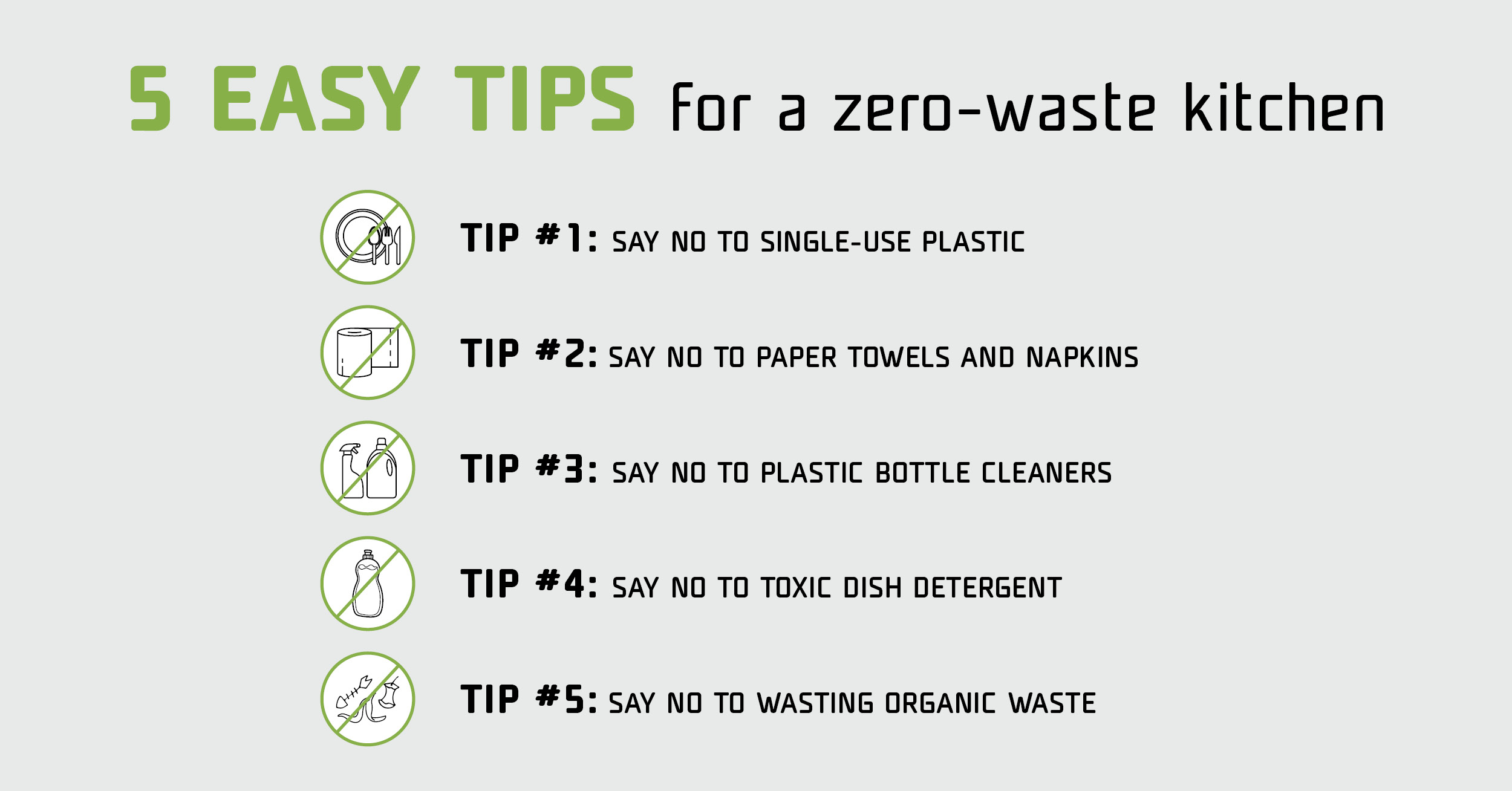 A Zero Waste Lifestyle: Start With A Zero Waste Kitchen
A Zero Waste Lifestyle: Start With A Zero Waste Kitchen
An average home produces a lot of waste, too much waste. Can you guess where the majority of domestic waste is coming from? Yes, you’ve guessed it, the ‘kitchen’ is the right answer. As such, reducing waste in that part of a household makes the biggest difference. Thus, we should all set ourselves a goal to eventually run a zero waste kitchen.
From all sorts of packaging to organic waste; it can all add up if we do not intentionally make an effort to reduce waste.
By the way, recycling is great; however, the ‘Reduce’ part of the ‘3Rs’ makes the biggest impact. Then comes the ‘reuse’ and finally the ‘recycle’ part. Moreover, once the zero waste kitchen goal is achieved, there is nothing left to be recycled.
For a minimal-waste kitchen to be established, you need to be mindful in advance. That way you can make the necessary changes in your shopping habits and in how you prepare your meals.
Furthermore, luckily things sometimes come together perfectly. When a zero waste lifestyle is concerned, it forces you to live more healthily. It turns out that what is good for nature is also good for your well-being in general. Pretty cool, right?
We know that a zero waste lifestyle may sound a little daunting, especially if you are just getting started with making the necessary changes. However, luckily, you can do some rather simple things to establish a minimal-waste kitchen, which is the best starting point towards zero waste living.
5 Easy Tips For A Zero Waste Kitchen
Since we all live rather different lifestyles, some of you may find certain suggestions of the 5 tips for a zero waste kitchen harder to implement than others. The trick is to do the best you can every day. Just apply baby steps to make slight progress towards a zero waste kitchen and eventually a zero waste lifestyle. You got this!
Just go through the 5 tips for a zero waste kitchen below. If you are already following them, good job. If not, make sure to do so ASAP.
Also, keep in mind that you’ll want to change your shopping habits accordingly. If you buy items that are going to produce waste, you make it impossible to achieve a zero waste kitchen.
Are you ready? Let’s dig in!
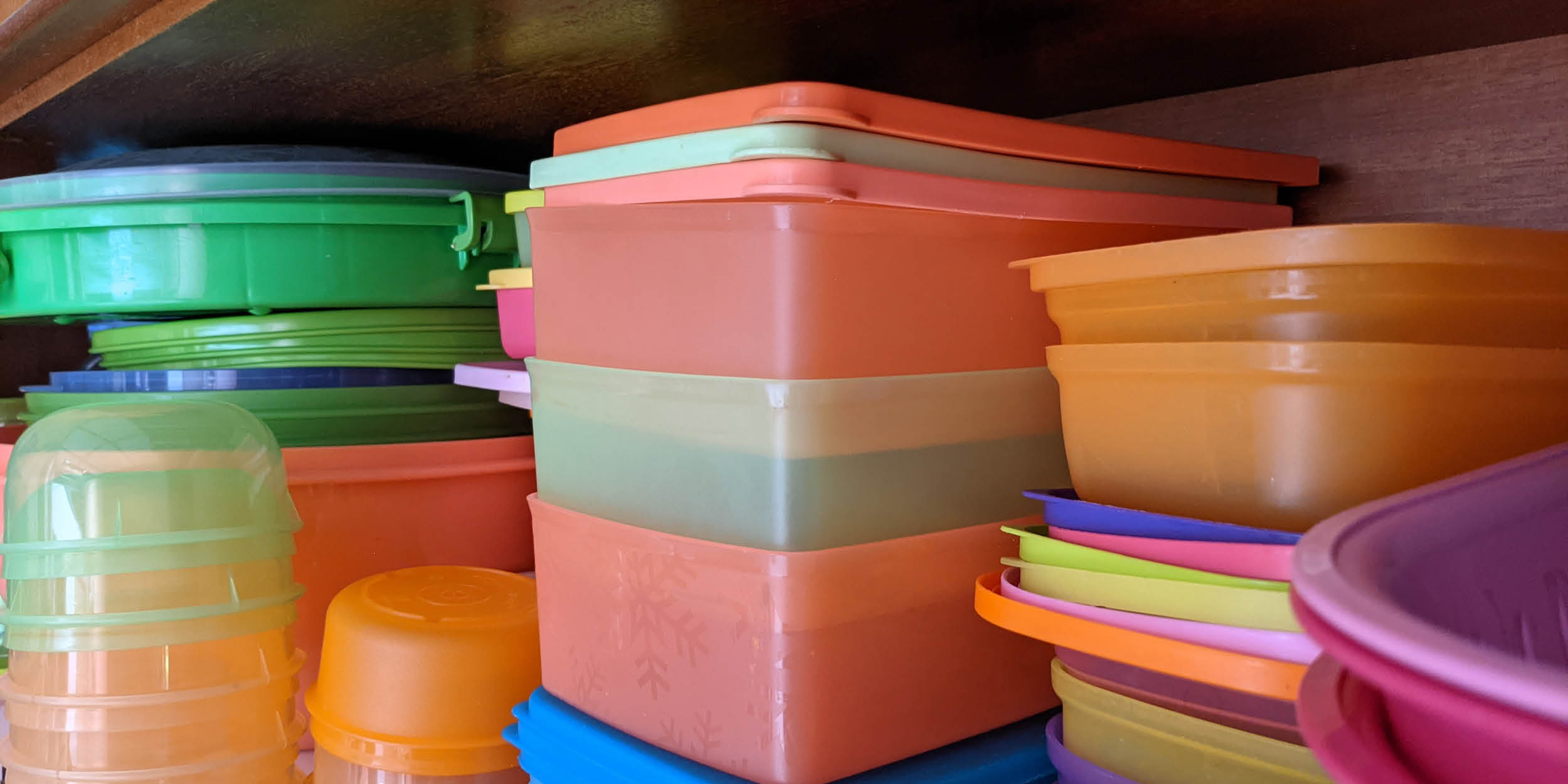 Tip #1: Say No To Single-Use Plastic
Tip #1: Say No To Single-Use Plastic
Eliminating single-use plastic in your kitchen is one of the biggest steps you can take towards establishing a zero waste kitchen. Single use-plastic items are highly problematic, especially because they are rarely recyclable.
Here are some concrete items you should aim to eliminate and replace with a sustainable version:
- Plastic Wrap/Foil - The best alternative for plastic wraps are reusable beeswax food wraps. The second best are high-quality stretchy silicone lids. Both of these are easy to wash and can be used over and over again.
- Single-Use Bags For Freezing - Instead of using single-use freezing plastic bags, you should switch to reusable bags for freezing. The best options, made from platinum silicone, may also be used for microwaving.
- Plastic Straws - Most people do not consider straws to be essential. As such, you should not find it too difficult to stop using them. However, if your household requires straws, make sure to attain reusable ones. There are bamboo, steel, and glass options available. Note: When using reusable straws, ensure to get a tiny brush that will enable you to clean them on the inside.
- Grocery Plastic Bags - Using a reusable shopping bag is not only environmentally friendly but also saves you some money. Moreover, make sure to avoid using those thin plastic bags for fruits and veggies (in case your store requires weighing). There are reusable mesh bags available particularly for that purpose in most local supermarkets these days.
- Plastic Water Bottles - By switching to your reusable water bottle, you can save a ton of plastic. In case you live in an area where tap water is not potable, you need to consider using water filters.
- Wrapped / Packed Food - We have to admit that this is a tough one. It is not easy to completely avoid buying only in stores that offer non-packed food. This definitely limits your options. Moreover, some shift in your diet may be required to achieve this. Look for local stores and farms that offer package-free groceries.
Make sure to be mindful of single-use plastic in your kitchen. If you encounter any other items not listed above, do your best to replace them with a sustainable alternative.
Tip #2: Say No To Paper Towels and Napkins
Paper towels and napkins are made from trees. Moreover, the process of producing paper towels involves dangerous chemicals and wastes a lot of energy and water. As such, finding an alternative for your paper towels is quite essential. It goes the same for paper napkins. Cloth towels are a good alternative.
Tip #3: Say No To Plastic Bottle Cleaners
In your quest to establish a zero waste kitchen, you want to avoid buying and using plastic bottle cleaners. You can achieve this by creating your own eco-friendly cleaner. There are countless recipes available online and they work like a charm. By reusing your old cleaner’s bottle or obtaining a glass spray bottle, you save a noticeable amount of plastic.
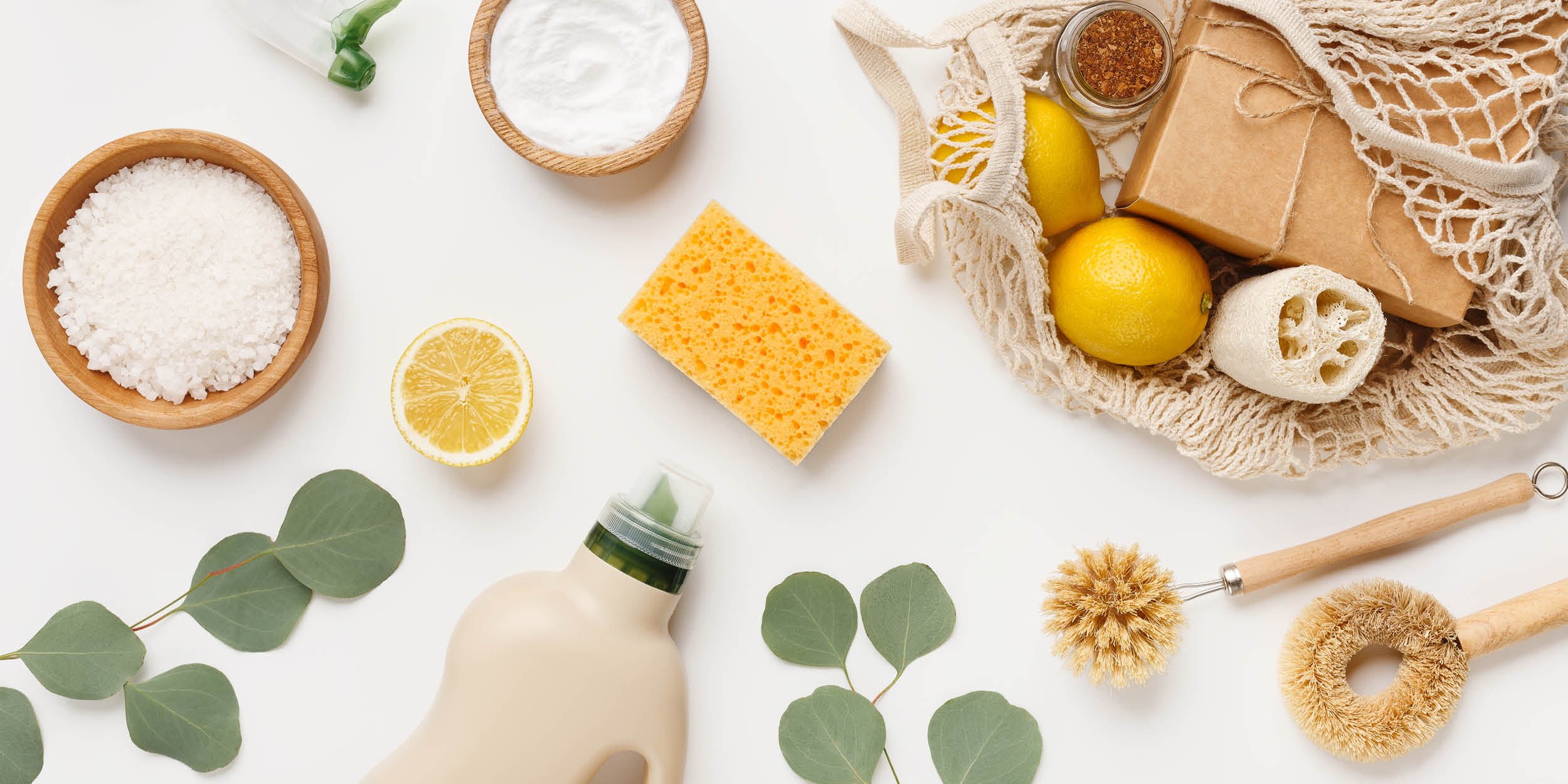 Tip #4: Say No To Toxic Dish Detergent
Tip #4: Say No To Toxic Dish Detergent
In case you are hand washing your dishes, follow the previous tip. However, the majority of you probably use dishwashers. In that case, you want to ensure you are using eco-friendly biodegradable pods. Avoiding some packaging here is almost impossible. However, you can go with a brand that packs their eco pads in cardboard, which you can use in your fireplace or recycle.
Tip #5: Say No To Wasting Organic Waste
All of the previous tips were mainly focused on containers and plastic waste. However, organic waste is a major part of every kitchen. So how can you reduce organic waste production? The answer lies in composting in combination with choosing the right kind of food. If you decide to live a healthy lifestyle (and a zero waste lifestyle), your diet will normally be mainly plant-based. As such, you will have no difficulties incorporating composting. Though, a proper composting solution has no problem handling animal-based food waste.
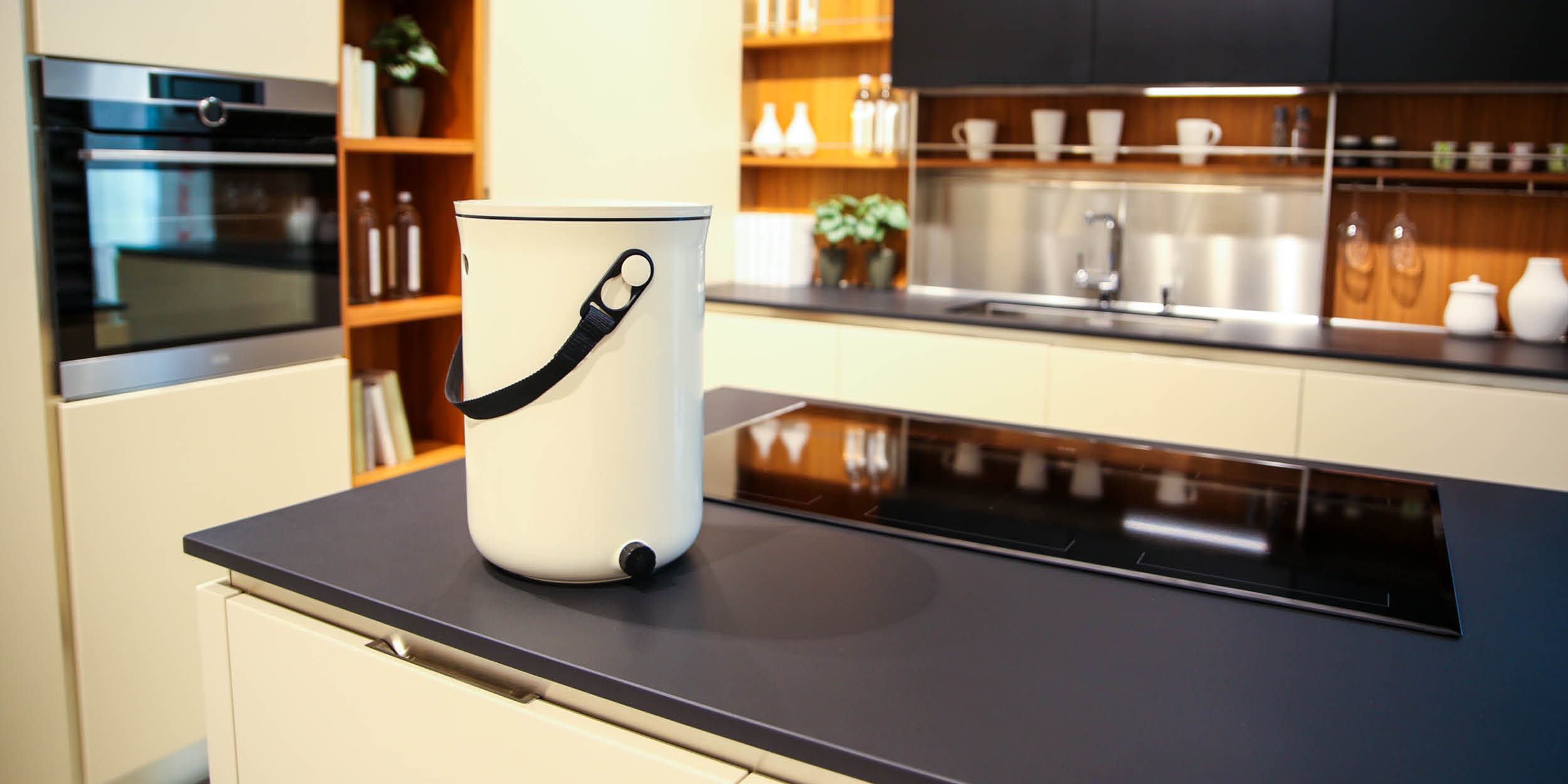 By doing so, you will turn your organic waste into a useful soil builder and fermentation liquid. Both of which may be used for your potted plants or your garden. In case you have neither, you shouldn’t have a problem finding a local gardener/farmer who’d be happy to accept or even buy your kitchen’s by-products.
By doing so, you will turn your organic waste into a useful soil builder and fermentation liquid. Both of which may be used for your potted plants or your garden. In case you have neither, you shouldn’t have a problem finding a local gardener/farmer who’d be happy to accept or even buy your kitchen’s by-products.
While there are several composting methods, we prefer Bokashi composting. Of course, we might be biased as we produce a special in-home composting solution called Bokashi Organko.
Off To A Zero Waste Lifestyle ...
Our part in helping you establish a zero waste kitchen, which is the first step towards a zero waste lifestyle, concludes here. You now know what 5 easy tips for a zero waste kitchen are and how to best implement them.
However, we need to remind you that it is up to you to turn the above words into action. This is the only way to make the necessary change and lead by example for the mass adoption of zero waste living. We believe in you and know that you will be a proud minimal-waste kitchen owner in no time.

